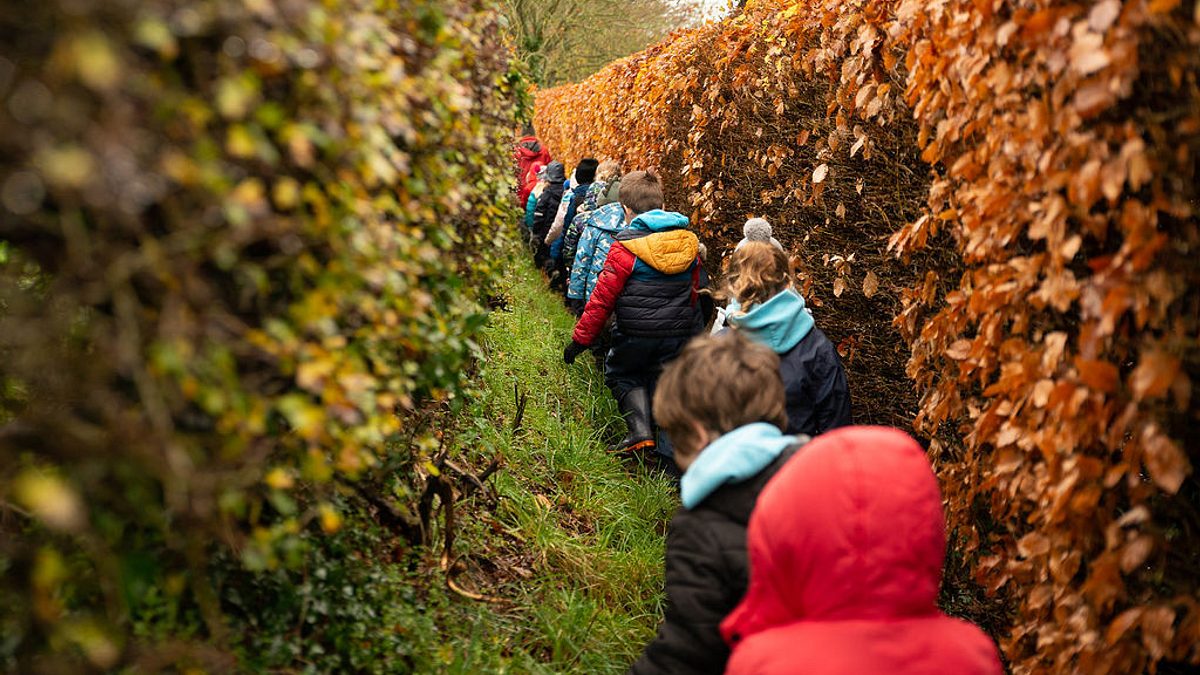
Blog -
Do mixed-aged classes in small schools create ideal conditions for metacognitive regulation?
Emily Smeaton, draws on her experience teaching mixed aged classes to investigate metacognitive skills

Share on:

by North Yorkshire Coast Research School
on the
In our previous discussions, we’ve tackled the intricate nuances of identifying deprivation in rural schools and explored the widening disparity between wages and living costs for disadvantaged families in rural settings. Now, we shift our focus to the critical issue of inadequate services in rural areas, compounding challenges for those in need.
Nestled amidst the scenic beauty of North Yorkshire Moors, I count myself fortunate to reside and work in an area blessed with natural splendour. However, beneath this picturesque facade lies the harsh reality of rural deprivation. As discussed earlier, the combination of higher living costs and lower wages in rural jobs exacerbates this issue, further compounded by the dearth of accessible services.
The challenges surrounding service accessibility in rural areas are twofold: a scarcity of services but also a challenge accessing existing resources due to a lack of, or high cost of, transport.
A report by The Countryside Alliance in 2022 revealed that rural households expend an average of £800 more annually on fuel costs compared to their urban counterparts. For families with children in small rural schools, even accessing a local shop can involve considerable travel and expense and the same would apply to access to a food bank or other resources. Consequently, attending pre-school activities or healthcare can become inaccessible. This is only exacerbated by the ongoing cost of living crisis.
Furthermore, studies such as Temple (2009) also demonstrate the disparity between attendance at pre-school when a place has been secured between those in rural and urban areas, possibly due to difficulties with or cost of transport
The notion of a “rural premium,” historically offset by the benefits of open spaces and pristine air quality, has now become a burden for many rural residents. As articulated by The All-Party Parliamentary Group for Rural Business and the Rural Powerhouse, this premium, once perceived as a boon, now contributes to the burgeoning challenges faced by rural communities.
For educators in small rural primaries, it is imperative to recognize that pupils from disadvantaged backgrounds may not fit conventional stereotypes. Their needs may be obscured by outward appearances, residing in homes with gardens and lacking overt indicators such as eligibility for Pupil Premium. Nonetheless, their need for support remains acute.
After recognising these challenges, both for those children with the FSM tag and those that do not qualify for this support, it is important to think where to go next for support and ideas. As a Research School our first port of call was the EEF Pupil Premium Guidance – first focusing on the wider strategies element to try and enhance our pupils’ chances of accessing the amazing place that we live fully.
By acknowledging the unique challenges posed by rural deprivation and adopting targeted strategies to address them, we can strive towards fostering inclusive environments where all children, regardless of their geographic location, have the opportunity to thrive.

Blog -
Emily Smeaton, draws on her experience teaching mixed aged classes to investigate metacognitive skills

Blog -
Katie Mallender a Secondary School school maths teacher from Caedmon College Whitby looks at literacy across the curriculum

Blog -
The second blog from Mari Palmer in her series on small rural schools this time with Rebecca Simpson from Lowick, Northumberland
This website collects a number of cookies from its users for improving your overall experience of the site.Read more